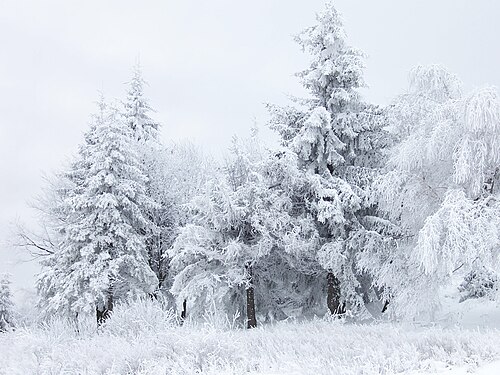Summernoun
One of four seasons, traditionally the second, marked by the longest and typically hottest days of the year due to the inclination of the Earth and thermal lag. Typically regarded as being from June 21 to September 22 or 23 in parts of the USA, the months of June, July and August in the United Kingdom and the months of December, January and February in the Southern Hemisphere.
Summernoun
(obsolete) A pack-horse.
Summernoun
A horizontal beam supporting a building.
Summernoun
A person who sums. Compare adder.
Summerverb
(intransitive) To spend the summer, as in a particular place on holiday.
Summernoun
One who sums; one who casts up an account.
Summernoun
A large stone or beam placed horizontally on columns, piers, posts, or the like, serving for various uses. Specifically: (a) The lintel of a door or window. (b) The commencement of a cross vault. (c) A central floor timber, as a girder, or a piece reaching from a wall to a girder. Called also summertree.
Summernoun
The season of the year in which the sun shines most directly upon any region; the warmest period of the year.
Summerverb
To pass the summer; to spend the warm season; as, to summer in Switzerland.
Summerverb
To keep or carry through the summer; to feed during the summer; as, to summer stock.
Summernoun
the warmest season of the year; in the northern hemisphere it extends from the summer solstice to the autumnal equinox;
Summerverb
spend the summer;
Summernoun
the warmest season of the year, in the northern hemisphere from June to August and in the southern hemisphere from December to February
Summernoun
the period from the summer solstice to the autumnal equinox.
Summernoun
years, especially of a person's age
Summernoun
a horizontal bearing beam, especially one supporting joists or rafters.
Summerverb
spend the summer in a particular place
Summerverb
pasture (cattle) for the summer.
Summer
Summer is the hottest of the four temperate seasons, falling after spring and before autumn. At or around the summer solstice (about 3 days before Midsummer Day), the earliest sunrise and latest sunset occurs, the days are longest and the nights are shortest, with day length decreasing as the season progresses after the solstice.
Winternoun
Traditionally the fourth of the four seasons, typically regarded as being from December 23 to March 20 in continental regions of the Northern Hemisphere or the months of June, July and August in the Southern Hemisphere. It is the time when the sun is lowest in the sky, resulting in short days, and the time of year with the lowest atmospheric temperatures for the region.
Winternoun
The period of decay, old age, death, or the like.
Winternoun
(obsolete) An appliance to be fixed on the front of a grate, to keep a kettle warm, etc.
Winterverb
(intransitive) To spend the winter (in a particular place).
Winterverb
(transitive) To store something (for instance animals) somewhere over winter to protect it from cold.
Winternoun
The season of the year in which the sun shines most obliquely upon any region; the coldest season of the year.
Winternoun
The period of decay, old age, death, or the like.
Winterverb
To pass the winter; to hibernate; as, to winter in Florida.
Winterverb
To keep, feed or manage, during the winter; as, to winter young cattle on straw.
Winternoun
the coldest season of the year; in the northern hemisphere it extends from the winter solstice to the vernal equinox
Winterverb
spend the winter;
Winter
Winter is the coldest season of the year in polar and temperate zones; it does not occur in most of the tropical zone. It occurs after autumn and before spring in each year.






















